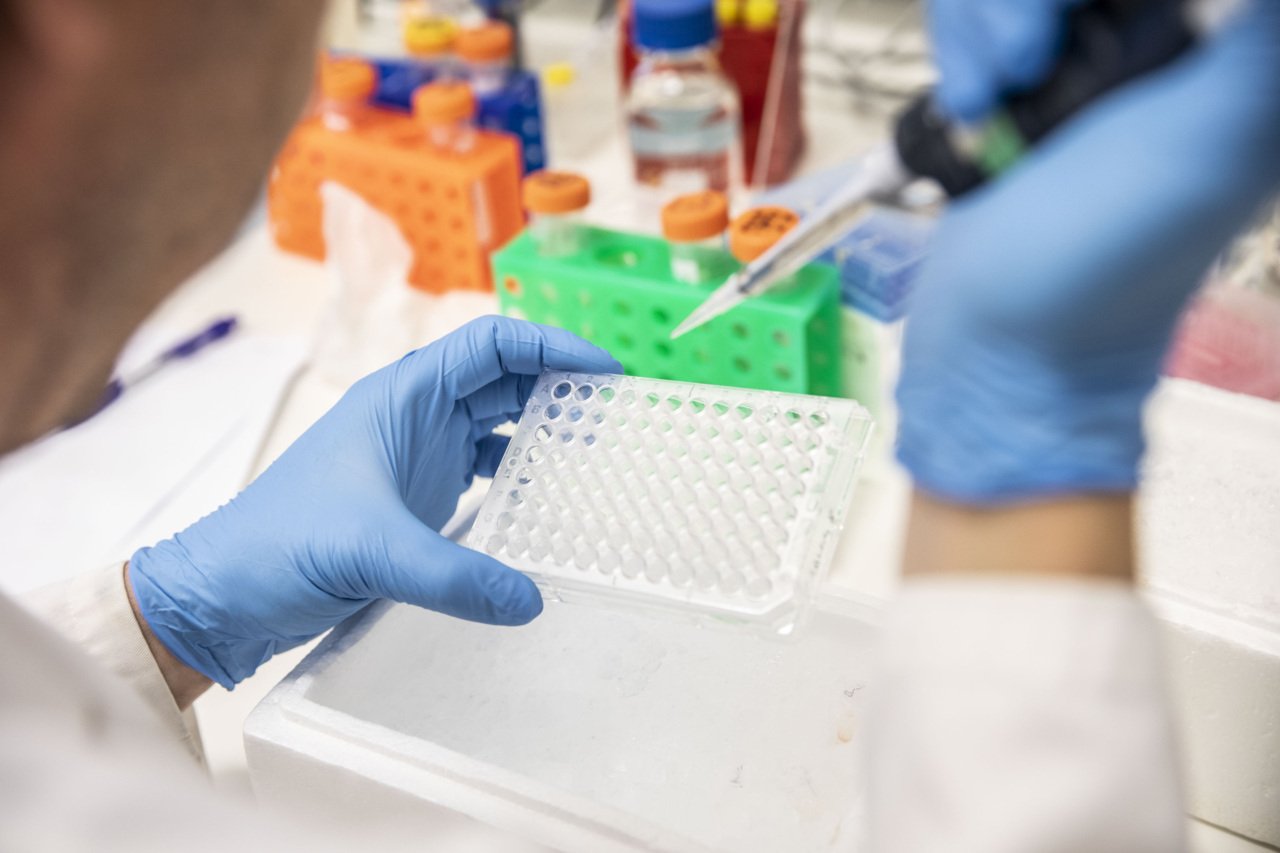The funding from CUREator – a biotech incubator backed by the Australia Government’s Medical Research Future Fund – will launch the spin-out to harness new platform technology to identify and develop new and improved medicines for schizophrenia.
Launched from a project led by Associate Professor Daniel Scott, Dr Christopher Draper-Joyce and Professor Ross Bathgate, LASEREDD uses a proprietary new technology platform to facilitate more targeted drug discovery against a class of cell surface proteins known as G-protein-coupled receptors (GPCRs).

Associate Professor Scott, Director of LASEREDD, says that while 30 per cent of the approved drugs act via different GPCRs, developing safe and effective drugs that act against GPCRs is a major challenge.
“GPCRs are involved in nearly every physiological process in our bodies, they are very important molecules in a huge range of diseases and conditions – and that’s why I’ve spent the past two decades studying them,” said Associate Professor Scott.
“With our next-generation platform technology, we aim to overcome significant barriers that have hindered GPCR drug discovery – enabling the generation of medicines with improved therapeutic efficacy whilst reducing side-effect liability, improving the chance of success at the clinical stage of drug development.”
“The funding from CUREator will enable us to take on this validation study, growing our team of scientists, and demonstrate the ability of our platform. In particular, these funds will allow us to make significant headway in applying this platform to the problem of schizophrenia, developing more effective and safer medicines.”
With schizophrenia affecting 24 million people across the world, and up to 200,000 Australians, the researchers say there is a huge need for treatments that are both effective and have fewer side effects.
“With its unique capabilities, LASEREDD aims to address the needs of people living with schizophrenia from a completely new angle, to develop effective treatments with greatly reduced side effects to significantly improve quality of life,” said Associate Professor Scott.
CUREator’s first round of funding awarded $17.4m to 23 projects – $8.5m of that went to 17 pre-clinical biomedical technologies – including the LASEREDD project – to guide promising research through proof-of-concept stages towards being investment-ready.
The incubator was established with $40m investment from the Federal Government’s Medical Research Future Fund (MRFF) and is run by Brandon BioCatalyst.
Dr Chris Nave, CEO of Brandon BioCatalyst, said the quality of applications for the first round of funding demonstrated the strength of medical research in Australia.
“The level of demand for this program, where grants are provided with the discipline of an investor, clearly demonstrated the need for this type of targeted funding, but also that more needs to be done,” said Dr Nave.
